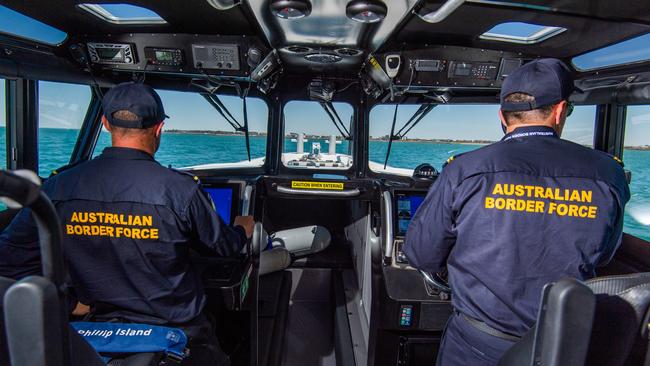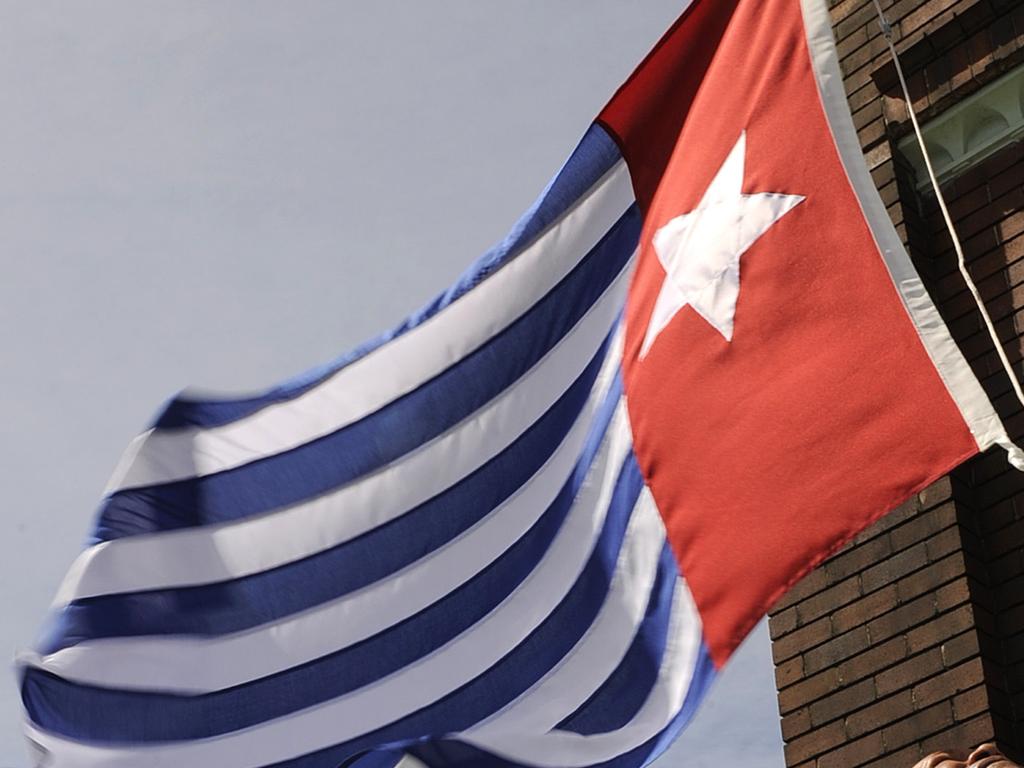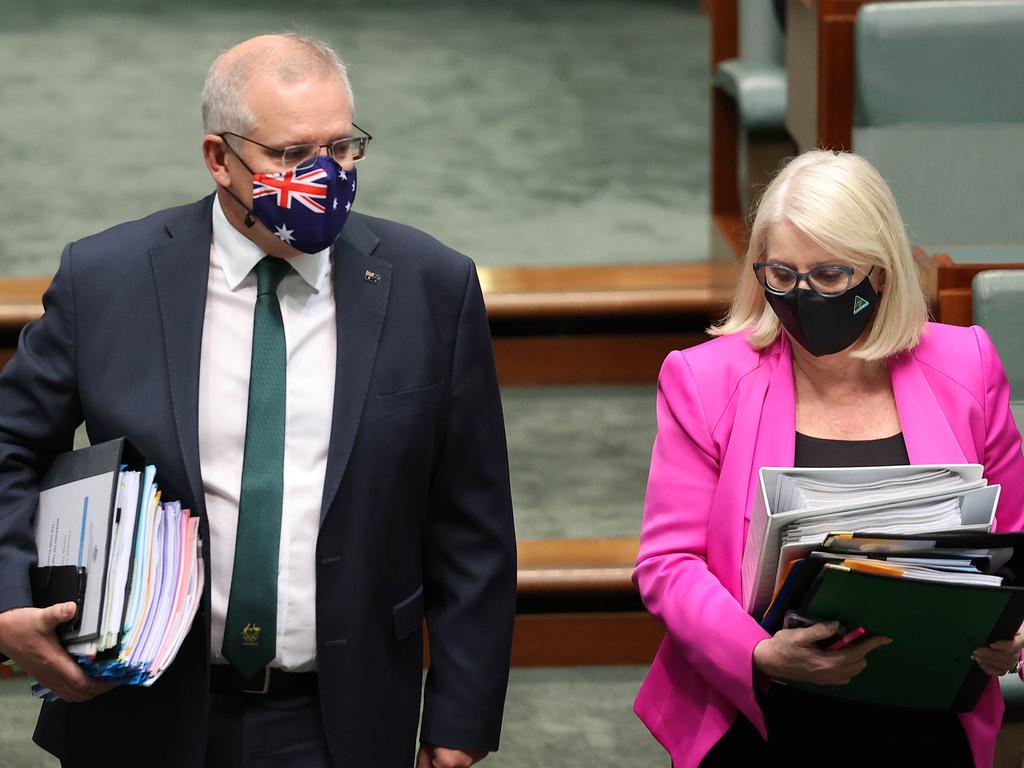Albanese government to end use of Temporary Protection Visas, 19,000 refugees to be given permanent residency
The Albanese government is bracing for a potential surge in asylum-seekers as it fulfils an election pledge, paving the way for about 19,000 refugees to stay permanently.

The Albanese government is bracing for a potential surge in asylum-seeker boats as it fulfils its election pledge to end the use of Temporary Protection Visas, paving the way for about 19,000 refugees who arrived by sea to stay permanently in Australia.
Immigration Minister Andrew Giles will announce the move on Monday, inviting TPV and Safe Haven Enterprise Visa holders who arrived before Operation Sovereign Borders commenced on September 18, 2013, to apply for permanent residency with family reunion rights and a path to citizenship.
The Australian has confirmed TPVs will stay on the statute book, leaving them available as a future deterrent to people-smuggling operations while avoiding a messy political debate over the toxic issue that dogged the Rudd and Gillard governments.
TPV holders will be offered new Resolution of Status visas that will come with social security rights, higher education support and access to the National Disability Insurance Scheme, along with ongoing Medicare cover and mental health support.
The government briefed Indonesian, Malaysian and Sri Lankan officials last week on the policy change, ensuring that the nations from where most asylum boats depart were not caught by surprise. A senior government source said none expressed concern over the move.
Some Labor insiders fear the measure, delayed for eight months amid internal concerns at the policy, will prompt people-smugglers to test the nation’s border safeguards when the monsoon season comes to an end.
Former prime minister Kevin Rudd abolished the Howard government’s TPVs and offshore processing in 2008, despite warnings it would encourage people-smugglers, unleashing a wave of 820 boats carrying more than 50,000 asylum-seekers, including at least 1200 who died at sea.
A senior Labor source said there was now a “palpable” nervousness within the government that it could face a similar situation. “The election commitment was very clear. But some are worried about is that it’s going to go back to what it was under Rudd and (Julia) Gillard,” the source said.
The Coalition will go on the attack, arguing the abolition of TPVs will remove a key pillar of Operation Sovereign Borders, undermining a policy that reduced unlawful maritime arrivals to a trickle.
Home Affairs Minister Clare O’Neil said the government was committed to the remaining elements of Operation Sovereign Borders – boat turnbacks and regional processing – and those who tried the voyage would never be allowed to stay in Australia.
“Let me be crystal clear – if you try to enter Australia without a valid visa, you will be turned back or returned to your port of origin,” she said.
“There is zero chance of settling in Australia under Operation Sovereign Borders. The Australian Defence Force and Australian Border Force are patrolling our waters to intercept and return any boats that try to enter.”
Mr Giles said about 2500 refugees whose temporary visas had been cancelled would be unable to apply for the new Resolution of Status Visa, while about 5000 whose TPV applications were being reviewed would have to await rulings on their cases.
The government has committed $9.4m over two years to provide free visa application assistance through specialist legal services providers.
Mr Giles said the change recognised the hardships refugees had endured, and their contribution to their communities.
“There are thousands of TPV and SHEV holders in the community that have endured 10 years of uncertainty due to the policies of the previous Liberal government,” he said.
“TPV and SHEV holders work, pay taxes, start businesses, employ Australians and build lives in our communities – often in rural and regional areas.
“Without permanent visas, they’ve been unable to get a loan to buy a house, build their businesses or pursue further education. It makes no sense – economically or socially – to keep them in limbo.”
Labor’s move to abolish TPVs follows its failure to legally redesignate Nauru as a regional processing centre when its status lapsed in October, and its scramble last week to legislate that country’s role in the border protection system. It comes just weeks after an asylum boat carrying six Indian men and four Indonesian crew was intercepted in Australian territorial waters at Ashmore Reef. Those aboard were returned to Indonesia.
The attempt followed another by 13 Iraqis, who were sent back to Indonesia in December after being detected at Ashmore Reef, and the return of 45 Sri Lankans after a people-smuggling boat was intercepted in August.
Opposition home affairs spokeswoman Karen Andrews said after the interceptions that “Labor’s policy of abolishing TPVs only weakens border protection and creates opportunities for people-smugglers”.
Refugee activists say TPVs were cruel and ineffective, treating those on them like “second-class” refugees, without deterring boat arrivals.
“In 2000, the first full year after TPVs were introduced, there were 2939 arrivals. In 2001, by the time the policy was in full force, arrivals rose to more than 5000,” the Asylum Seeker Resource Centre said.
The government’s move to axe TPVs follows its announcement last week clearing the way for refugees who arrived by boat to bring family members to Australia. “The government is improving the family reunion pathways for these permanent visa holders, many of whom have been separated from family for over a decade, exacerbating mental health issues and imposing great and enduring uncertainty on their lives,” Mr Giles told SBS.
The Abbott government introduced the military-led Operation Sovereign Borders after the 2013 election under then-immigration minister Scott Morrison and now-Chief of the Defence Force Angus Campbell.
The policy brought people- smuggling to a virtual standstill but Mr Morrison was accused of undermining the integrity of the system when he ordered the Home Affairs Department to publicise the arrival of an asylum boat on the day of the last election – the first since 2014.






To join the conversation, please log in. Don't have an account? Register
Join the conversation, you are commenting as Logout